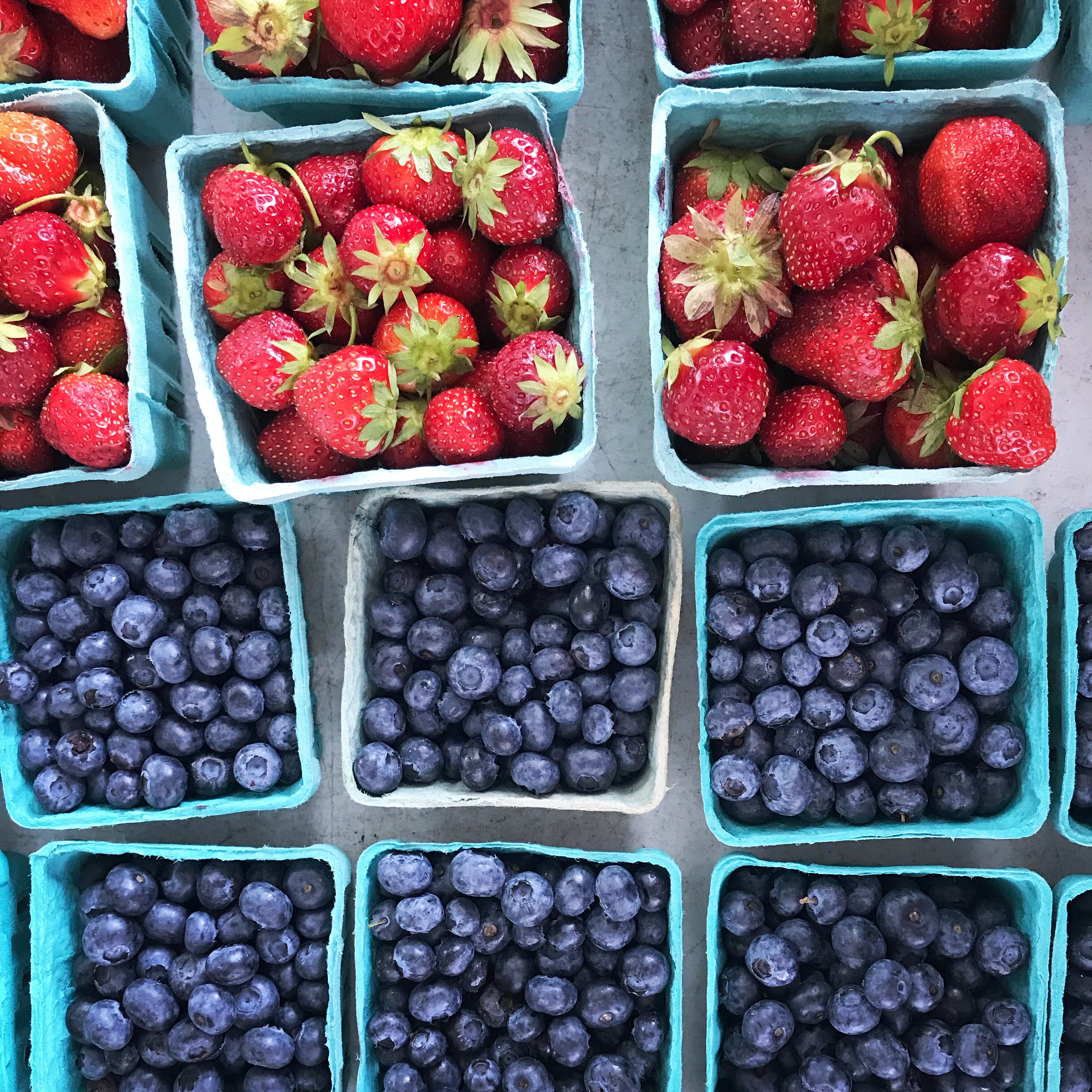You often hear about inflammation, chronic inflammation, and anti-inflammatory foods. But what exactly does that mean and should you be following an anti-inflammatory diet?
Continue reading to learn more about when inflammation becomes dangerous, and how to prevent or at least minimize it with the most powerful prescription of all: the FARMacy (i.e. food!).
An anti-inflammatory diet is based on eliminating common pro-inflammatory foods (think sugar, processed foods and white flour), and increasing nutrient-dense foods (leafy greens, berries, legumes, whole grains and nuts).
Pro-inflammatory foods are often processed, sugar-laden foods with little to no nutritional value. Anti-inflammatory foods are nutrient-dense and packed with vitamins, minerals and antioxidants.
What is inflammation?
Inflammation is the body’s natural defense response to foreign substances and invaders such as viruses and bacteria, food sensitivities and allergies, as well as environmental toxins and stress.
There are two types of inflammation: acute and chronic. Acute usually arises and disappears quickly, such as when the body is healing from a cut. Chronic inflammation can persist for months or years if the root cause it not addressed.
In the case of auto-immune conditions the body may produce a response even in the absence of a foreign invader. This is when the body mistakenly attacks its own organs, such as with Hashimoto’s thyroiditis. More on Hashimoto’s to come in a near future blog post.
Common symptoms of inflammation can include fatigue, headaches, joint pain or stiffness, loss of appetite and more. Inflammation may also affect organs such as the lungs, heart, kidneys and other organs and glands.
Why eat an anti-inflammatory diet?
Certain foods are known to cause and increase inflammation in the body, which is the root of most diseases, including Alzheimer’s, arthritis, cancer, depression, diabetes and heart disease.
Conversely, eating nutrient-dense foods that are packed with antioxidants can reduce the risk of and/or improve inflammation, therefore reducing your risk of disease.

Photo credit: Reader’s Digest
How does food help fight inflammation?
There are compounds in certain foods that can help fight inflammation. For example, the pigment that gives cherries and berries their color (anthocyanins) is a powerful antioxidant that fights inflammation.
The healthy fats found in walnuts and avocado fight inflammation, as do omega-3 fatty acids in salmon.
Vitamin K found in leafy greens also curbs inflammation, and so does the powerful antioxidant curcumin found in the rhizome, spice and supplement turmeric.
Some of the foods to include on an anti-inflammatory diet include:
- avocado
- berries, such as blueberries and blackberries
- broccoli, cauliflower and other nutrient-dense vegetables
- cherries
- cold water fish, including salmon and sardines
- dark chocolate
- dark leafy greens, including collard greens, kale and spinach
- dark red grapes
- green tea
- legumes, such as beans and lentils
- nuts, such as walnuts, pistachios, pine nuts, and almonds
- olives and olive oil (extra-virgin)
- spices and herbs, such as cinnamon, ginger and turmeric
- whole grains
Some of the foods to avoid on an anti-inflammatory diet include:
- alcohol in excess
- carbohydrates in excess
- desserts, such as cookies, candy, and ice cream
- excess alcohol
- gluten
- meats that are processed or cured
- nightshades, including tomatoes, potatoes, peppers and more (for some people)
- processed foods, such as chips and crackers
- oils such as canola, corn, soybean, vegetable and anything “partially hydrogenated”
- sugar, including sugary drinks
- trans fats, found in processed and fried foods
- white bread
- white pasta
Tips to follow an anti-inflammatory diet:
The top diet-related tip to reduce or avoid inflammation to avoid pro-inflammatory foods and increase anti-inflammatory ones (see list above). In addition, below are some other tips.
- drink plenty of filtered water
- eat a wide variety of fresh fruits and vegetables
- eat more whole, plant-based foods
- eliminate fast food
- eliminate fried foods
- eliminate processed foods
- eliminate soda and sugary drinks
- enjoy alcohol in moderation, if at all
There are also some studies that show a vegetarian/vegan diet increase biomarkers associated with good health. So eliminating meat and dairy and adopting a more whole foods plant-based diet may be beneficial.
Overall, by adopting a whole foods plant-based diet rich in fresh vegetables and fruit, whole grains, legumes and healthy fats, you are well on your way to an anti-inflammatory diet.
I personally follow a plant-based mostly vegan diet (vegan plus eggs) and I feel 100% almost every day, with boundless energy to boot! This is in spite of being diagnosed with Hashimoto’s and hypothyroidism just one year ago.
Need ideas or want to know what a sample day of anti-inflammatory meals and snacks looks like?
- Breakfast: Steel cut oats with unsweet almond milk, blueberries, flaxseed and walnuts, with a sugar-free matcha latte
- Snack: One whole orange
- Lunch: Chopped kale salad with lentils, avocado, shredded carrots, dried cherries and lemon-avocado oil vinaigrette
- Snack: 1 oz raw or dry roasted almonds
- Dinner: Chickpea channa masala with brown basmati rice and fresh spinach
- Dessert: Fruit “parfait” with organic berries, a dollop of coconut milk yogurt and a sprinkling of homemade refined-sugar-free granola
Sources: Harvard Health, medicalnewstoday.com, webmd.com
Disclaimer: This content is for informational purposes only and should not be used as nutrition or medical advice under any circumstances. Please consult with your physician or other healthcare professional before making changes to your diet.

